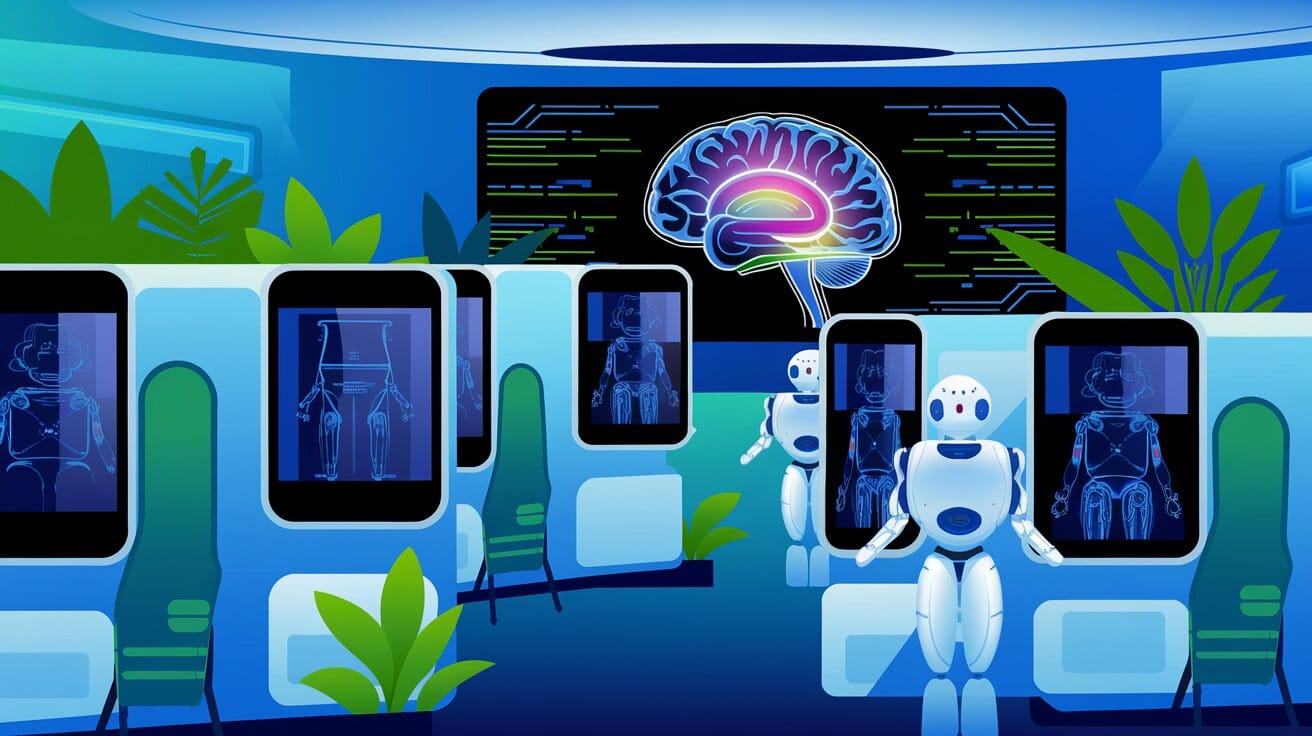

Are you ready to disrupt with AI? Join our Hackathon today! Click to Register
By WebOsmotic Team | Published on January 21, 2025
Summarize Article

Table of Contents
ToggleIntegrating AI in Mental Healthcare has sparked hope and concern in the mental health community. The rapid application of artificial intelligence in mental health care has offered promises to access, efficiency, and personalization of care; however, these promises raise several questions about the limits and ethical considerations of using this technology. This blog discusses the potential, impact, and challenges of AI mental health tools, highlighting how they will shape the future of mental health treatment and where the boundaries lie.
Artificial intelligence in mental health care has brought about some radical changes. This is by providing new solutions to this field’s most persistent challenges. Some of these include AI-based tools, such as chatbots and virtual therapists. Such tools give direct, instant access to persons dealing with mental health issues in real-time 24/7 hours, where conventional therapy services may not be accessible. It employs NLP and machine learning algorithms to emulate human-like conversations that deliver personalized support and evidence-based interventions.
Also, huge amounts of information analyzed by AI help determine possible patterns of potential mental health disorder development. Intervention and prevention follow this course when such conditions or disorders occur beforehand.
An example is how mobile therapy applications utilize one’s moods, behaviors, and sleeping tendencies to develop relevant clues that might enable the person to utilize the app with his doctors. Hence, it improves the efficiency of handling their mental well-being.
Aspect | Traditional Therapy | AI-Driven Tools |
Accessibility | Limited by location and time | Available 24/7 through apps |
Personalization | High (human empathy) | Limited, based on algorithms |
Cost | Can be expensive | Often more affordable |
Privacy Concerns | Therapist confidentiality | Risks with data breaches |
Crisis Management | Immediate human intervention | May lack nuanced crisis response |
Integrating AI in Mental Healthcare requires careful examination of ethical and regulatory considerations. The most basic ethical concern would be that the AI tools do not replace but rather complement human therapists. Their purpose should be to increase access to care while supporting human therapists, not to replace them altogether.
The safety and efficacy of AI mental health tools must be ensured through regulatory frameworks. These include standards for data privacy, security, and transparency. Users should be informed about how their data is collected, used, and protected, and they can opt-out.
AI algorithms must avoid biases to promote equal care provision for all users. For this reason, AI systems must be exposed to diverse data sets to avert the persistence of inequalities in mental health care. These tools must be monitored and updated to meet ethical and regulatory standards.
The future of AI in Mental Healthcare is a treasure trove, holding promises of far greater change. Future developments will ensure the next leap of transformation for this field, with technologies like deep learning, natural language processing, and even emotion recognition expected to amplify the capabilities of AI mental health tools, making them much more intuitive and effective.
AI Tool | Purpose | Unique Feature |
Woebot | Mood tracking, CBT-based guidance | Conversational AI, chatbot approach |
Wysa | Anxiety and stress relief | Uses evidence-based techniques |
Replika | Emotional support | AI-powered personalized interactions |
Youper | Mood analysis, therapeutic support | Combines AI with clinical frameworks |
Talkspace (AI Features) | Enhances human therapy sessions | Chat-based session summaries |
Preventive care is also going to expand into AI’s domain. With data analysis from various sources, including social media, wearable devices, and electronic health records, AI can predict and prevent mental health crises before they reach the crisis stage. This will be a shift from treatment to prevention in mental health care.
Integrating AI into Mental Healthcare has exciting opportunities and important challenges. The increased accessibility, efficiency, and personalization of mental health care through AI tools are matched by the corresponding rise of salient ethical, regulatory, and practical considerations. Balancing the strides taken with technology for more effective care and preserving the human touch in mental health is crucial.
Doing so will ensure that AI is a precious ally in developing mental health care and outcomes globally. Partner with WebOsmotic to create innovative, future-ready solutions that elevate your business, engage audiences, and drive impactful results.
Unlock exclusive insights and expert knowledge delivered straight to your inbox